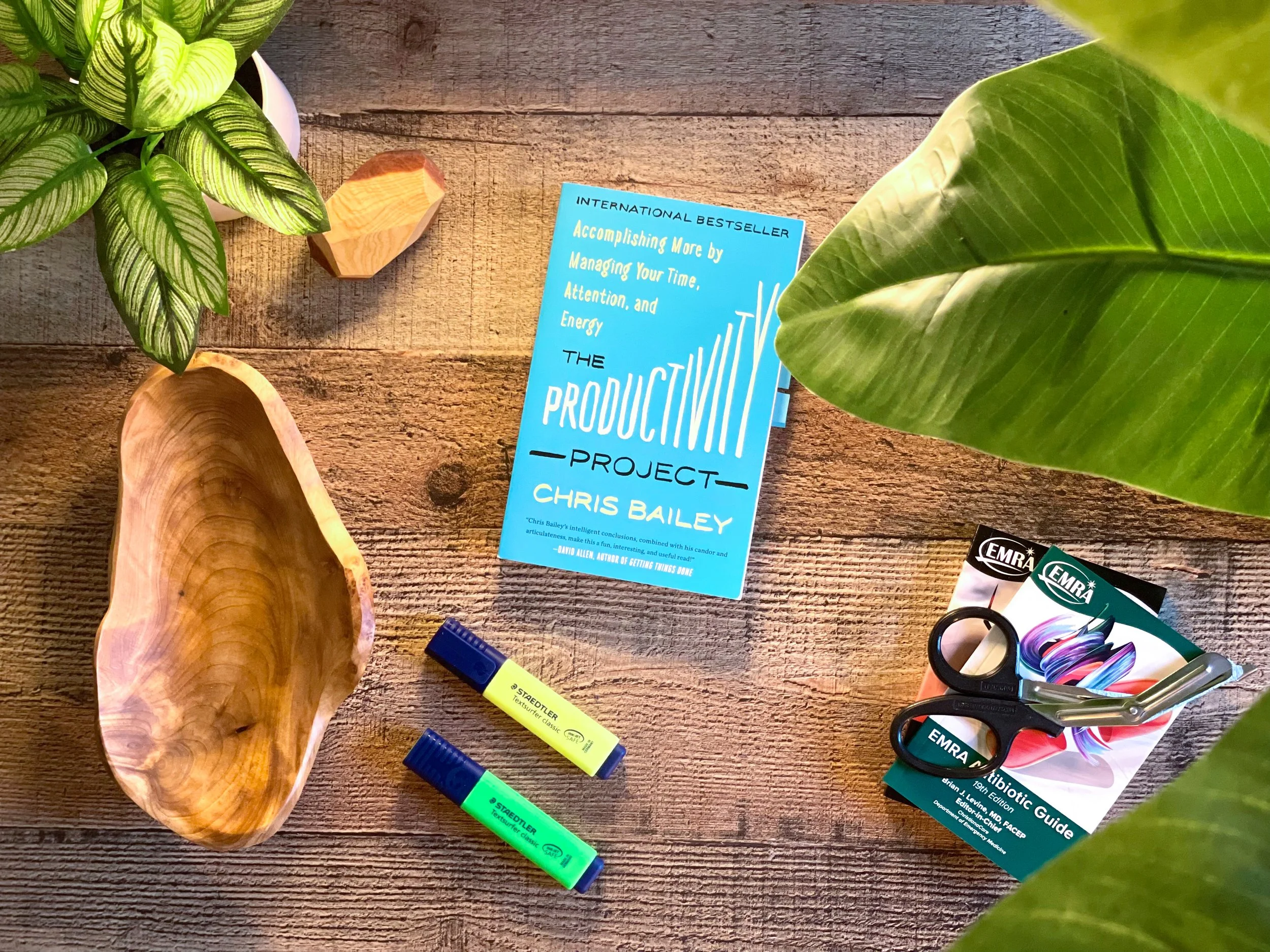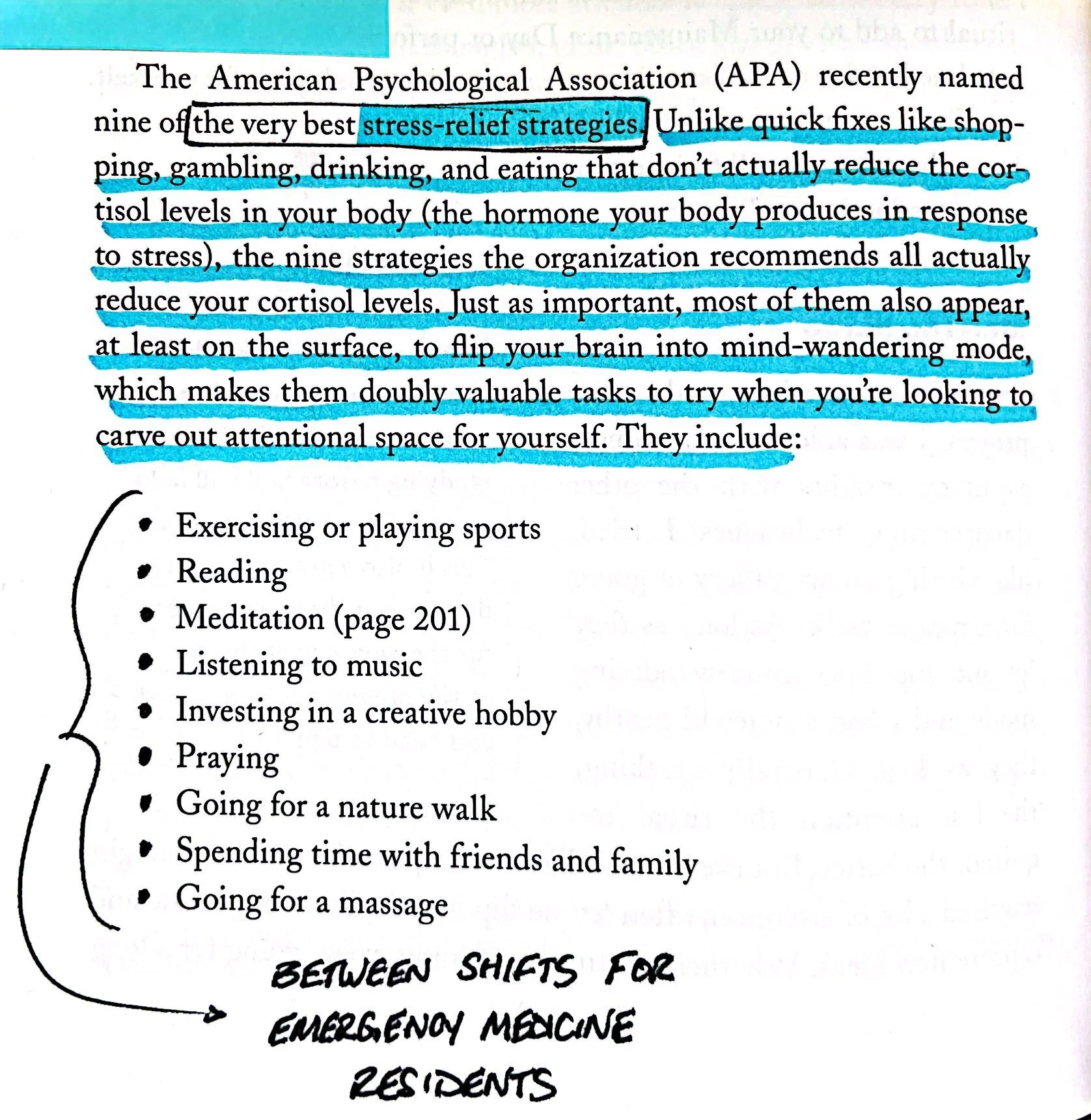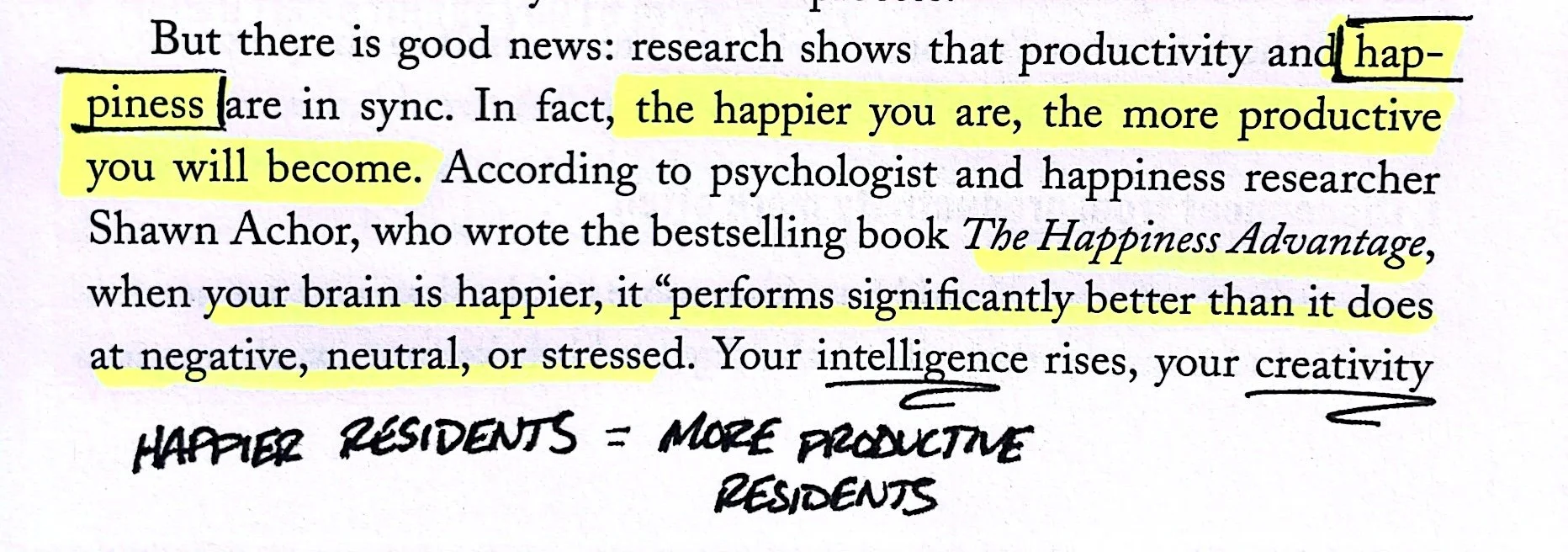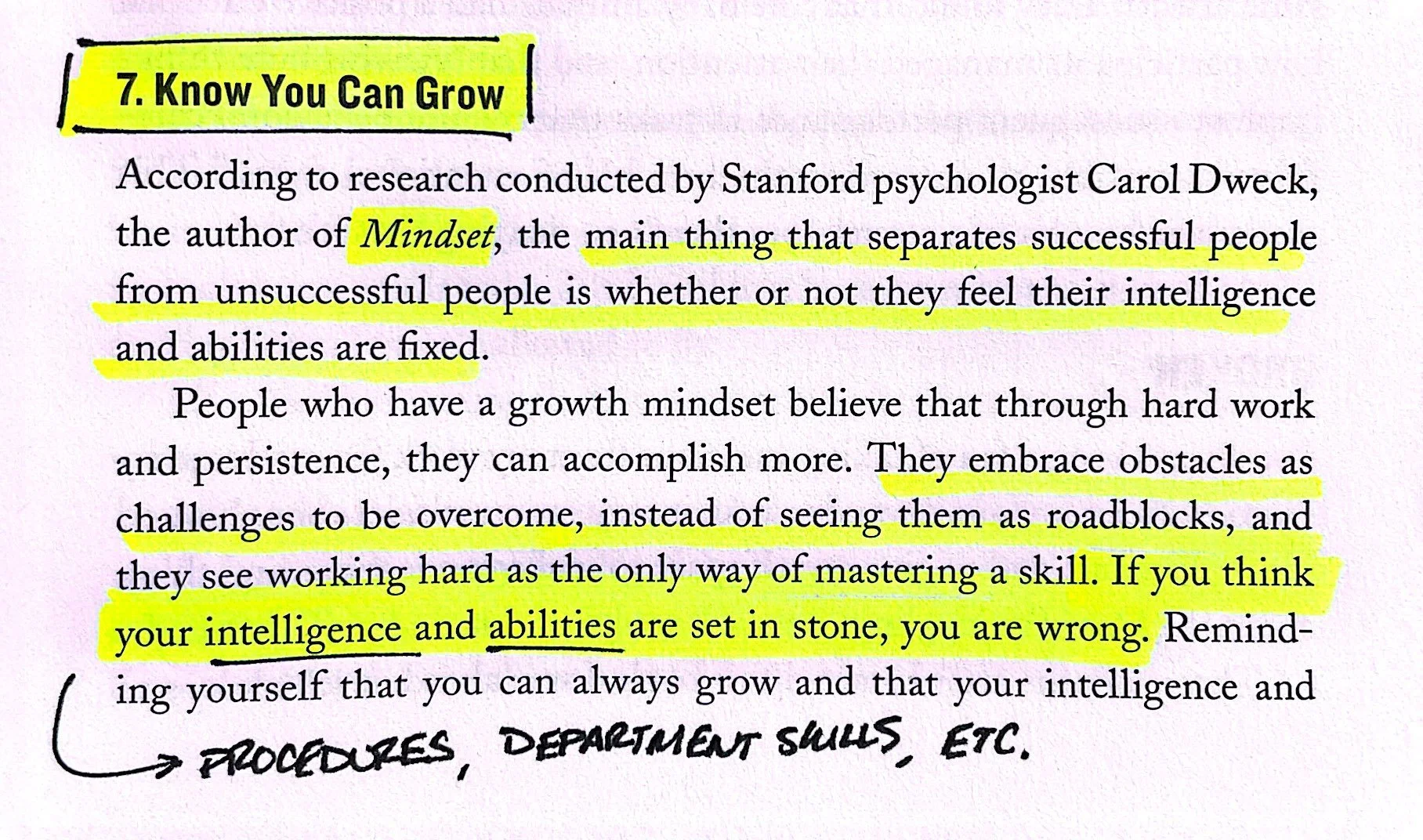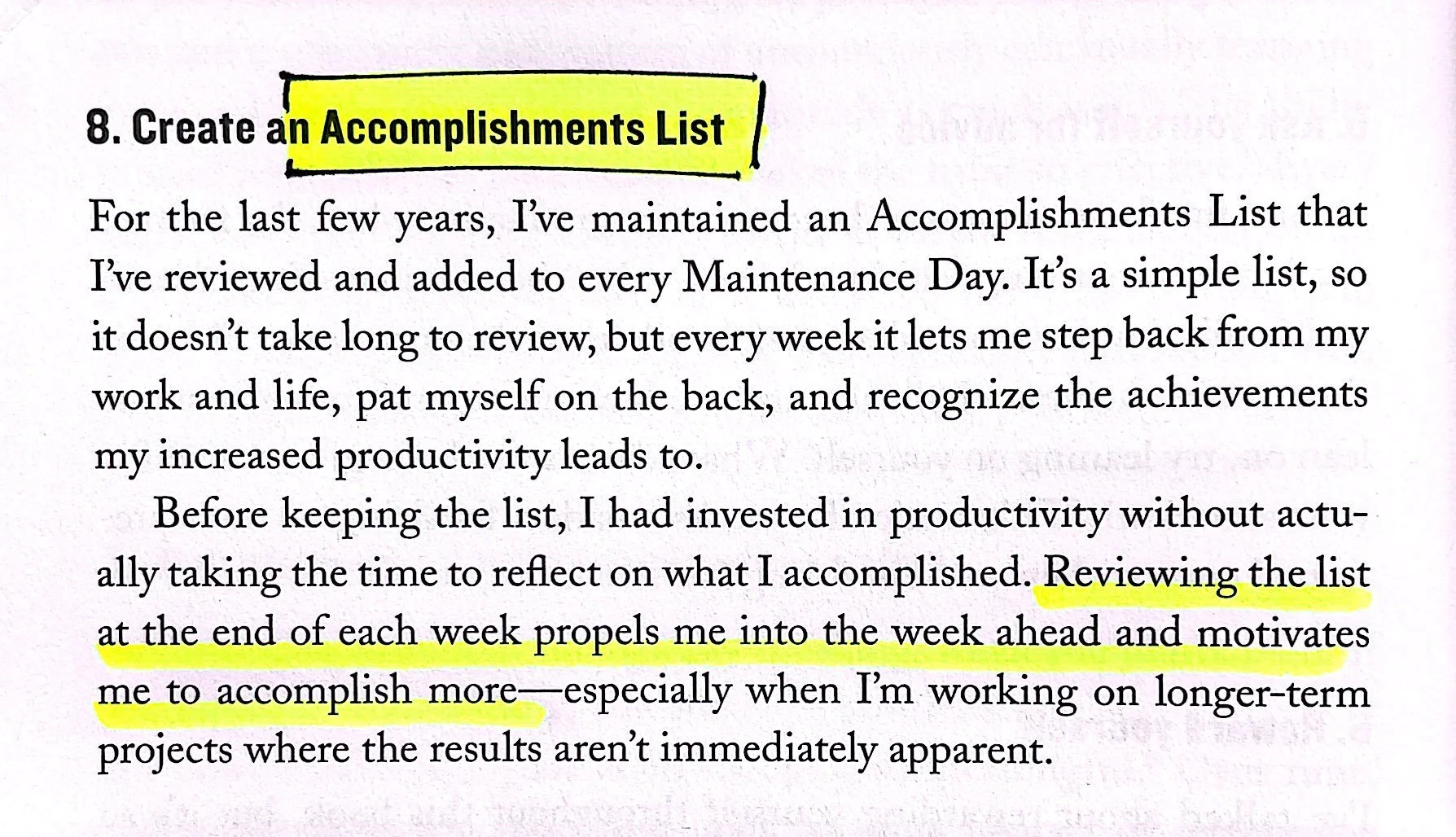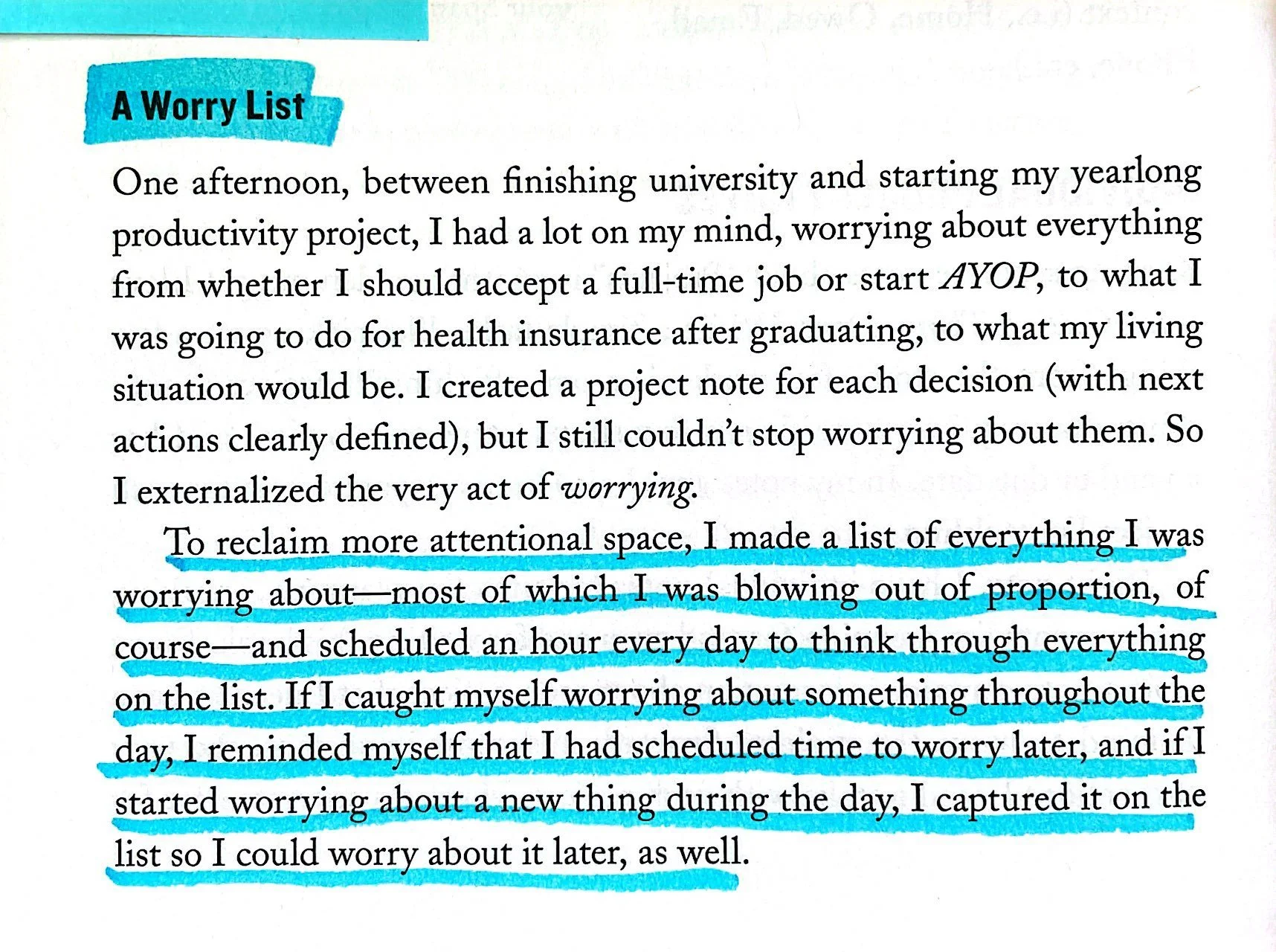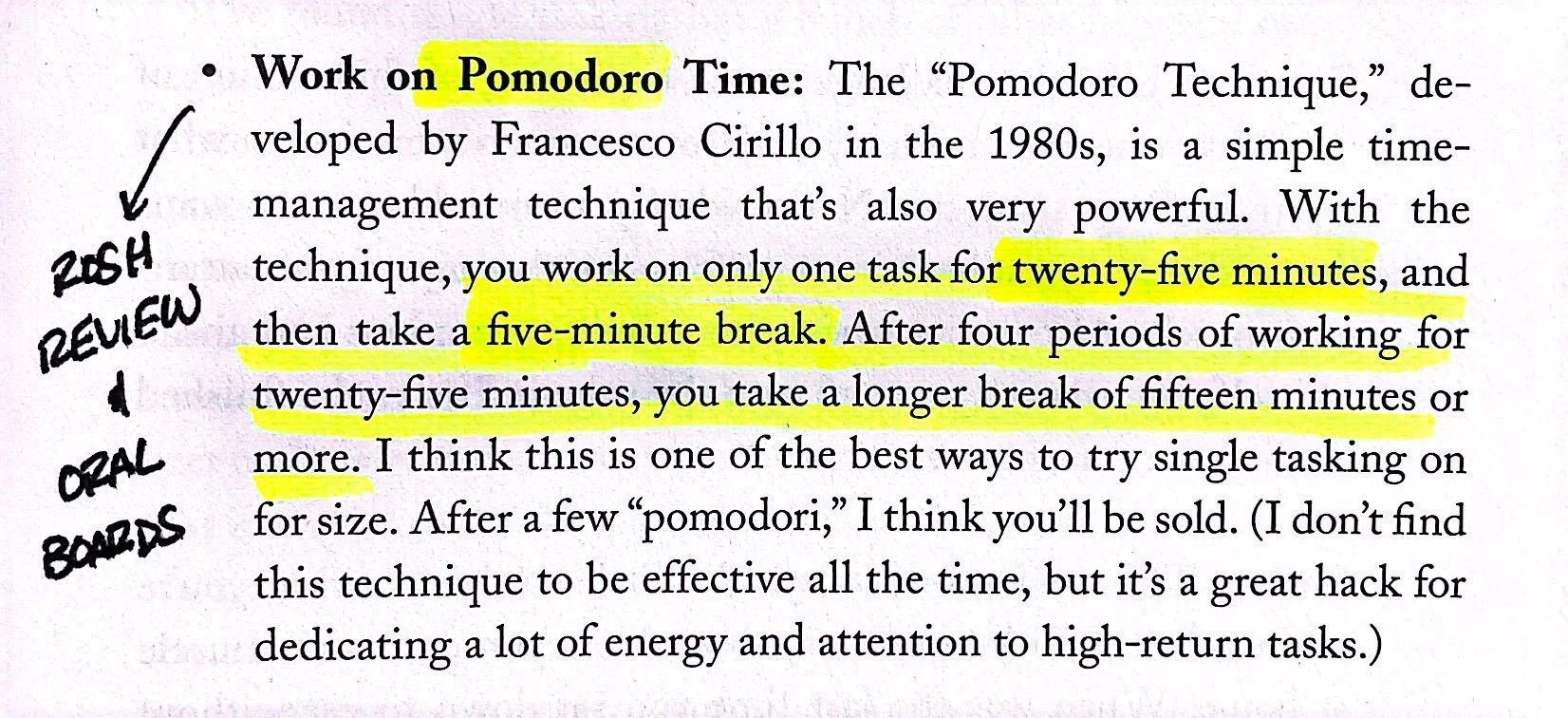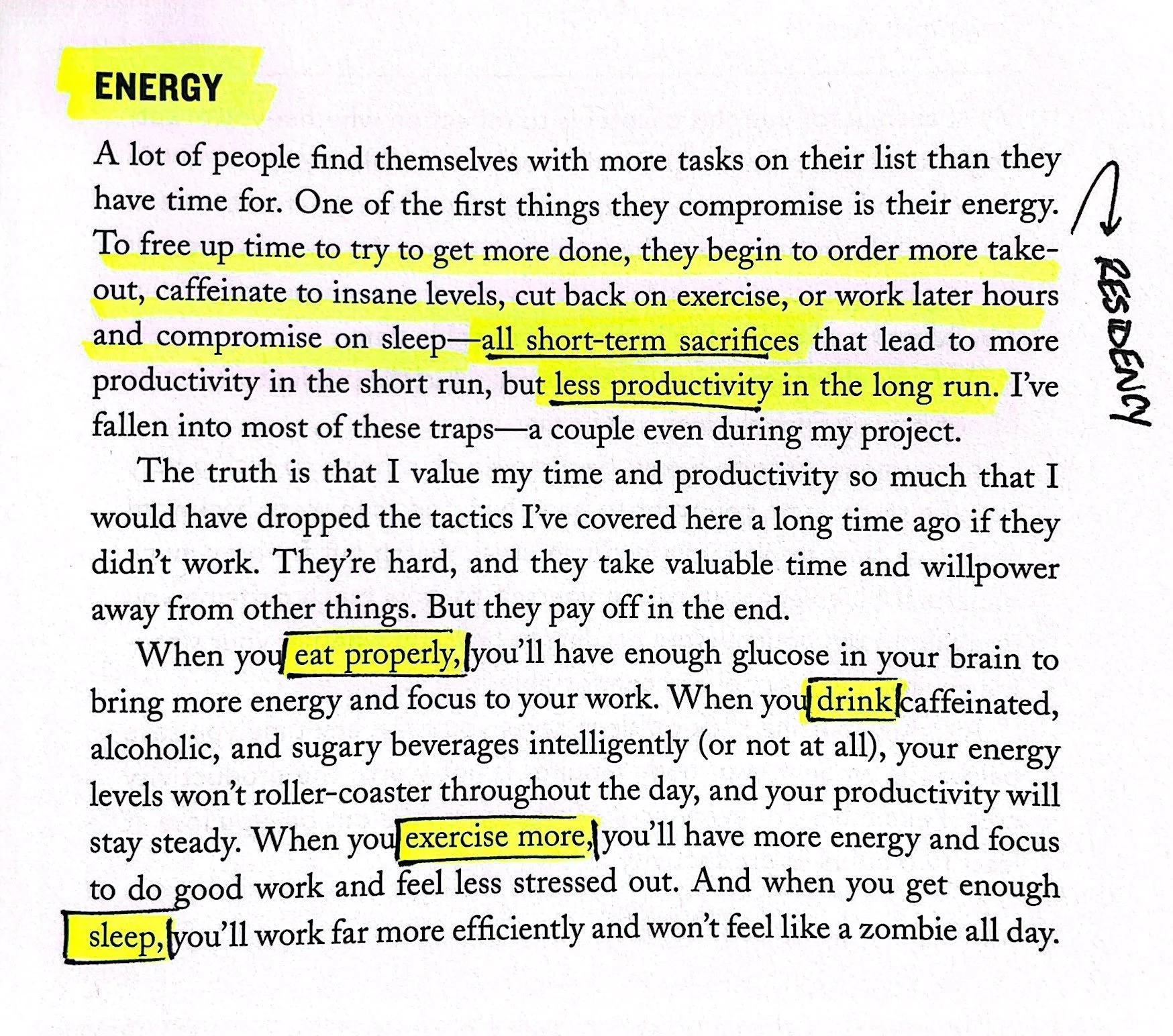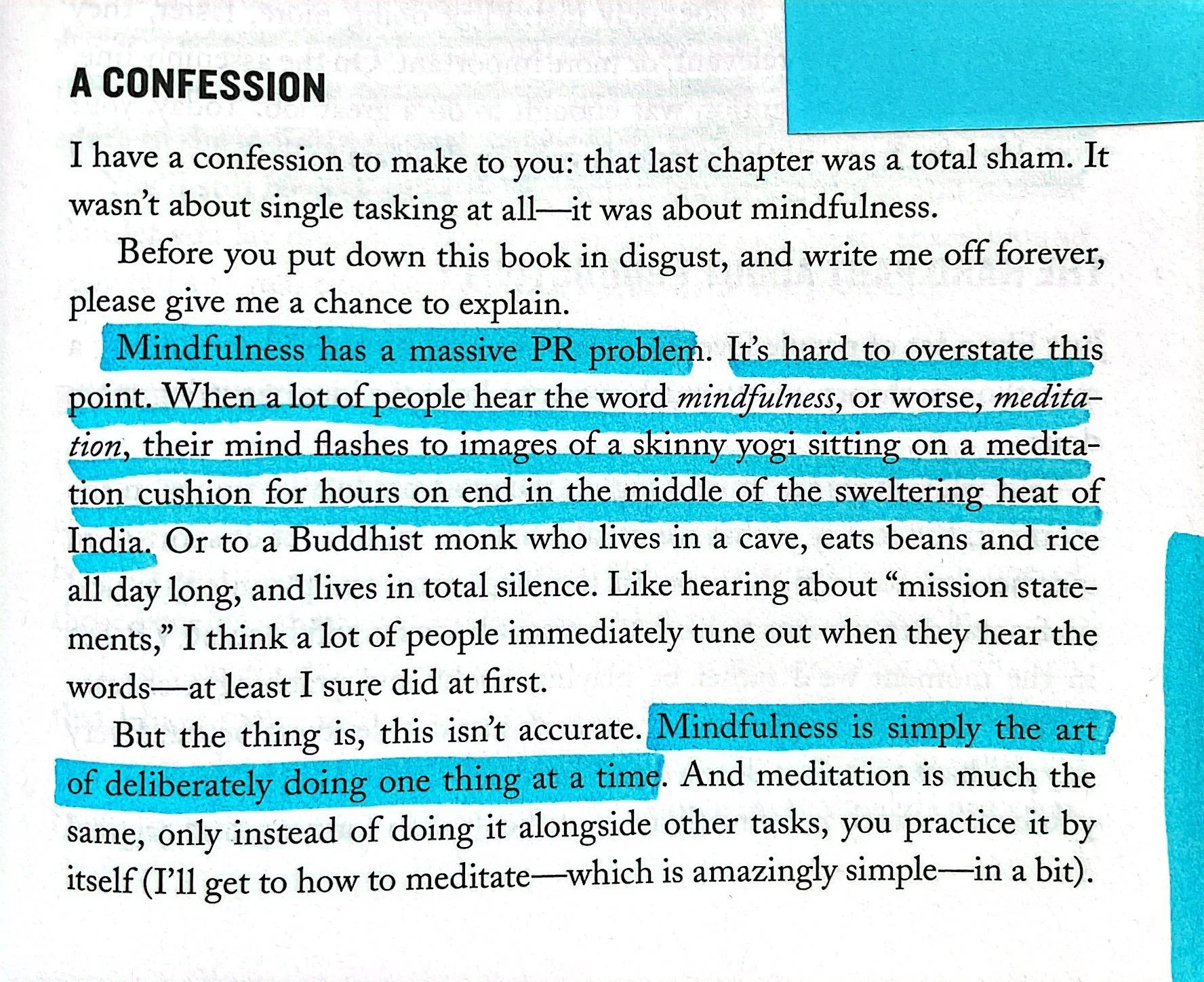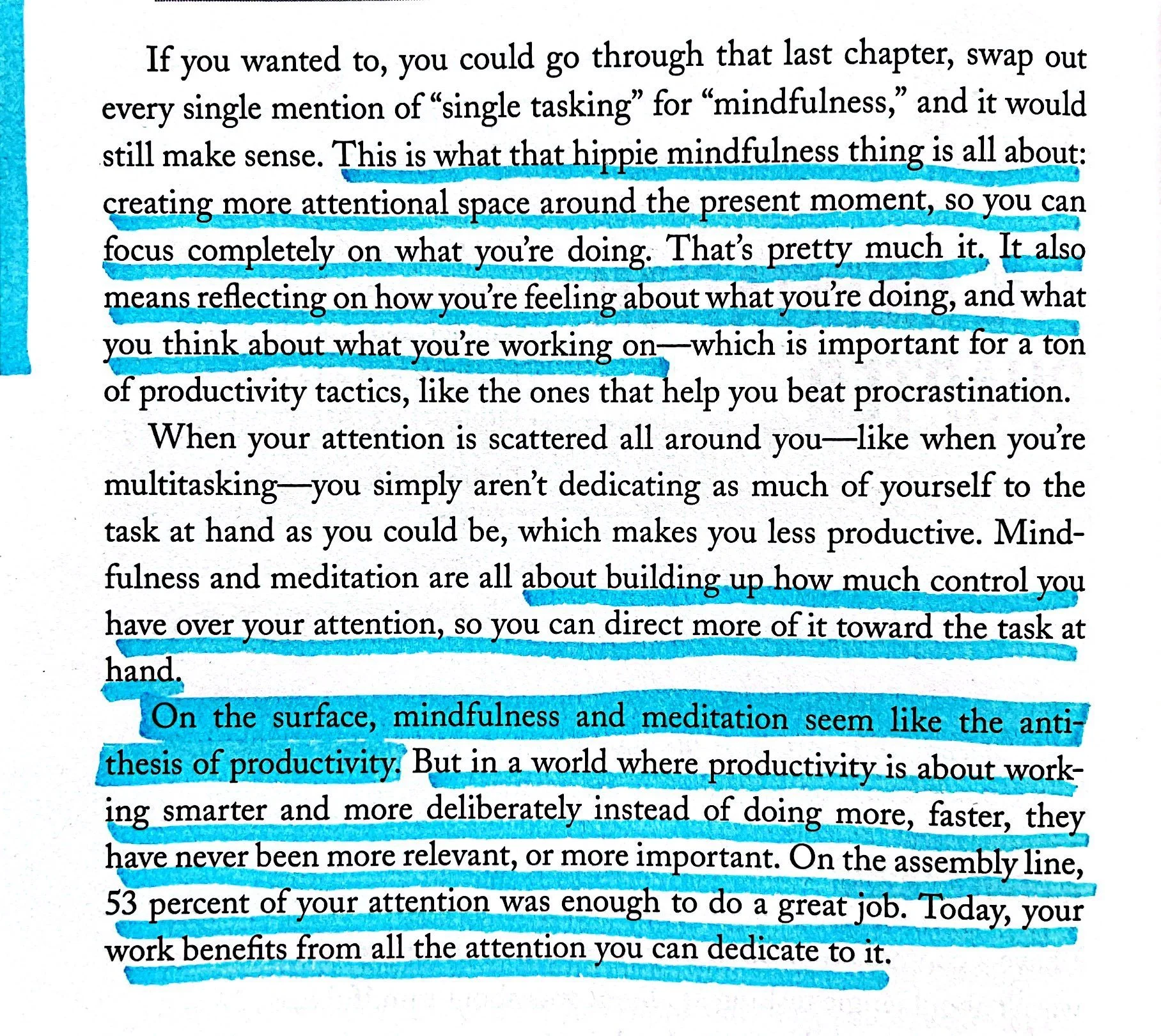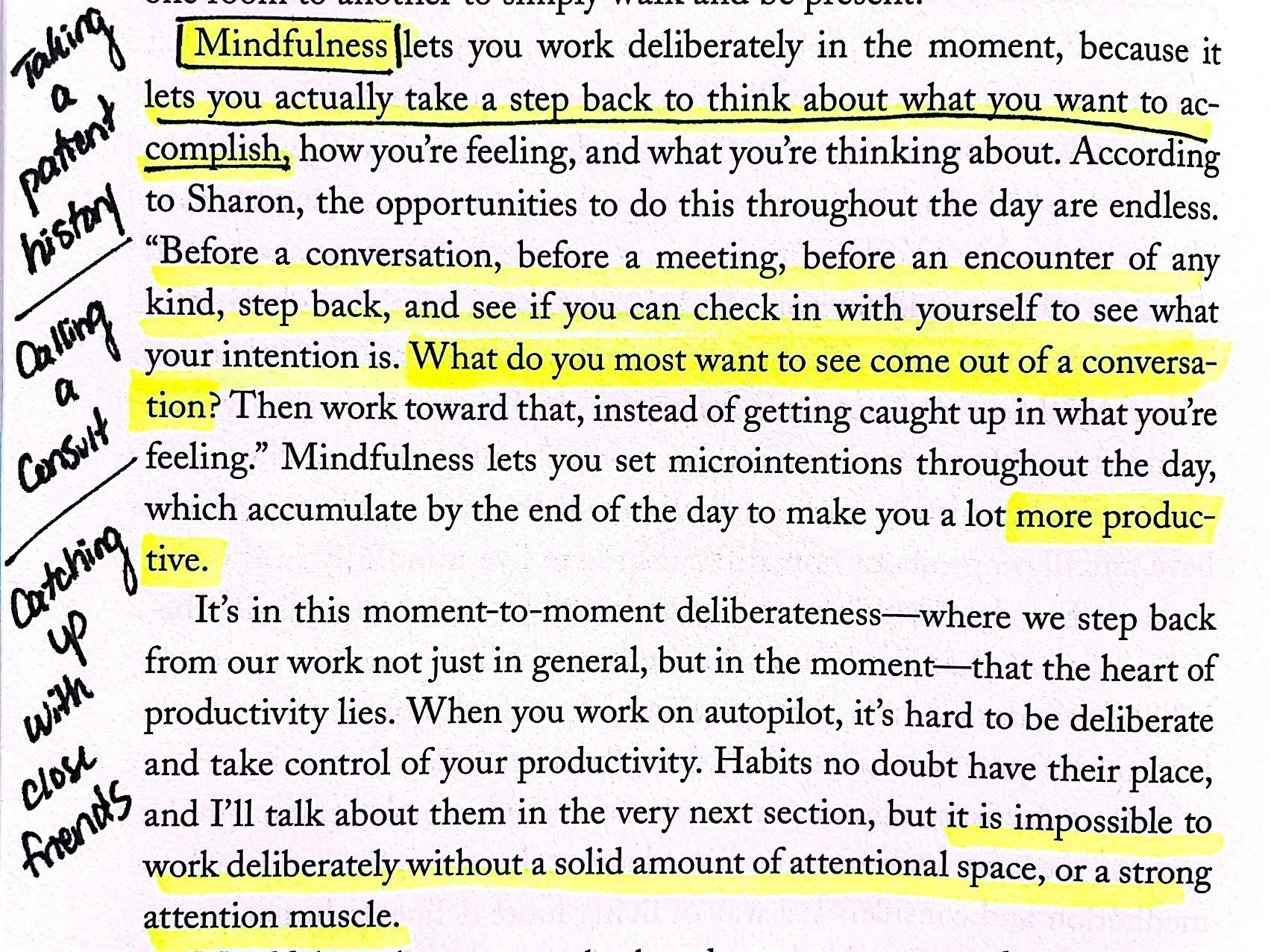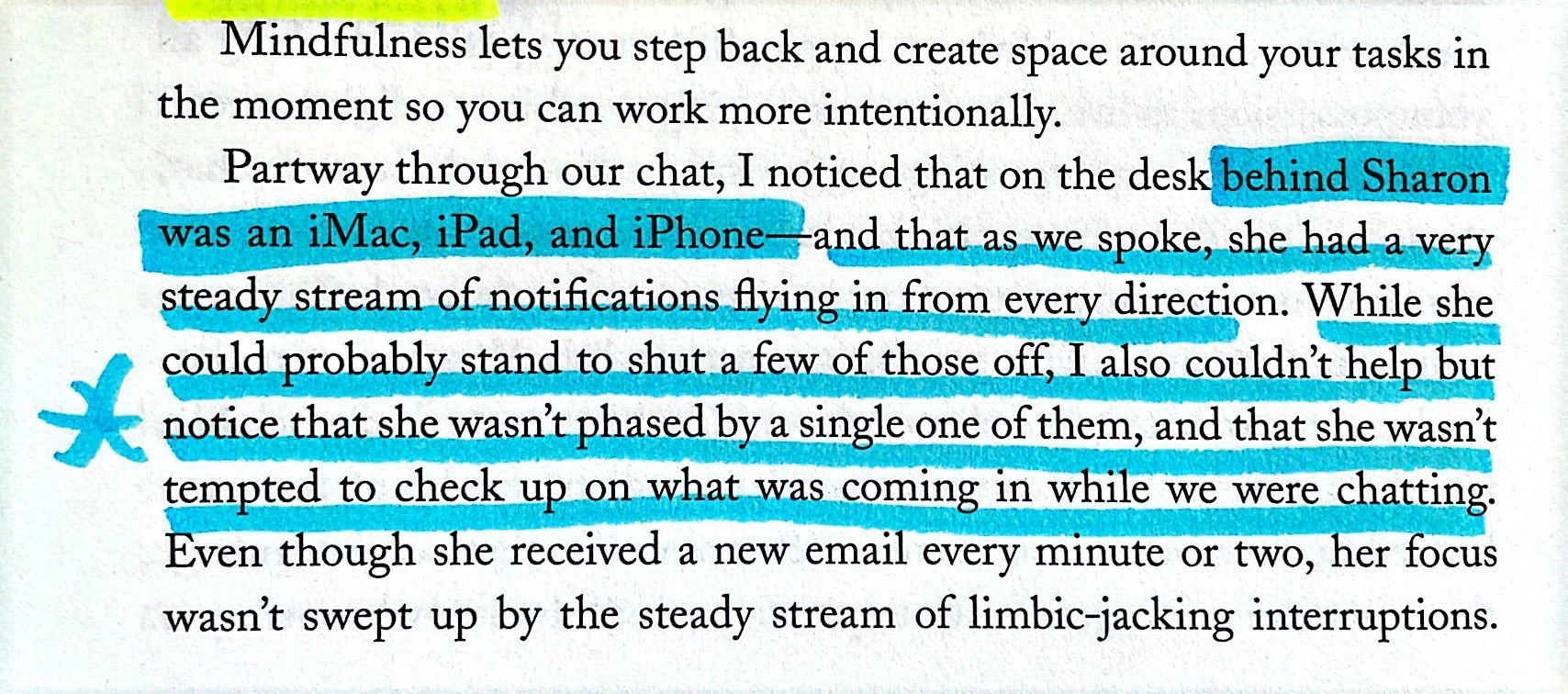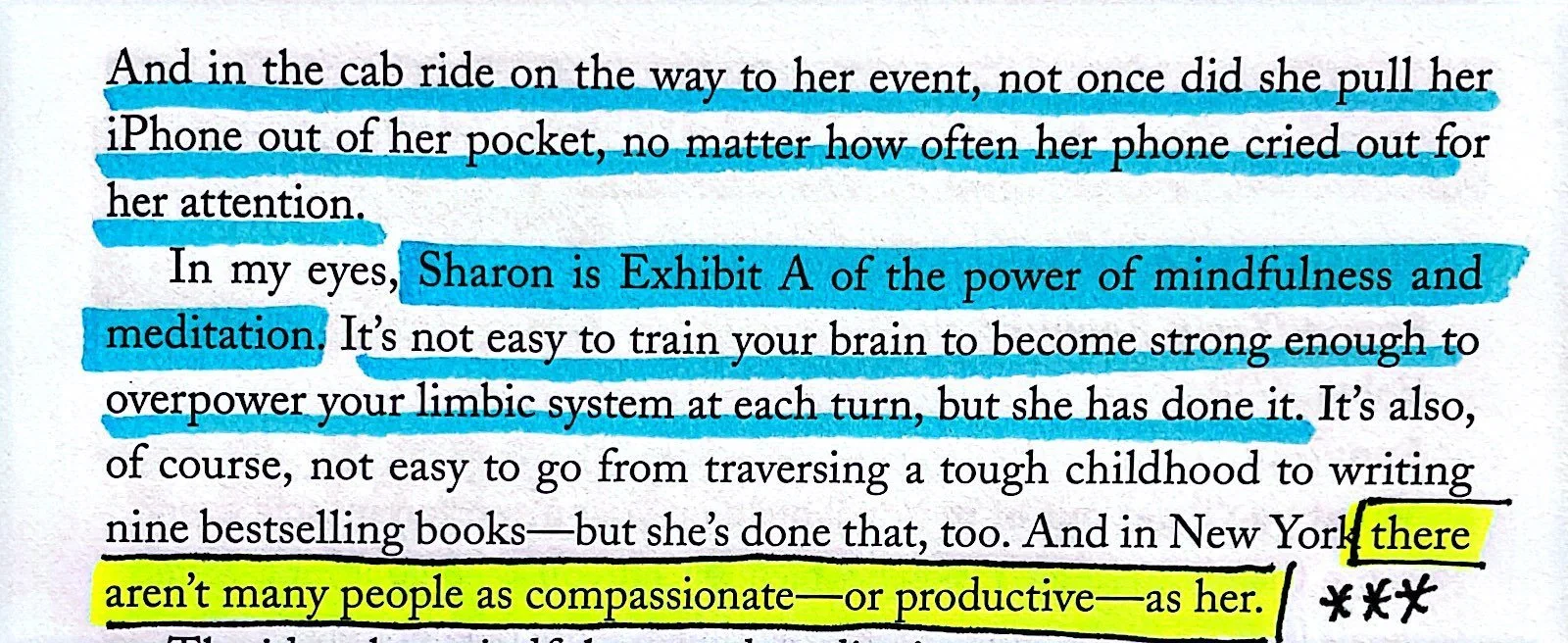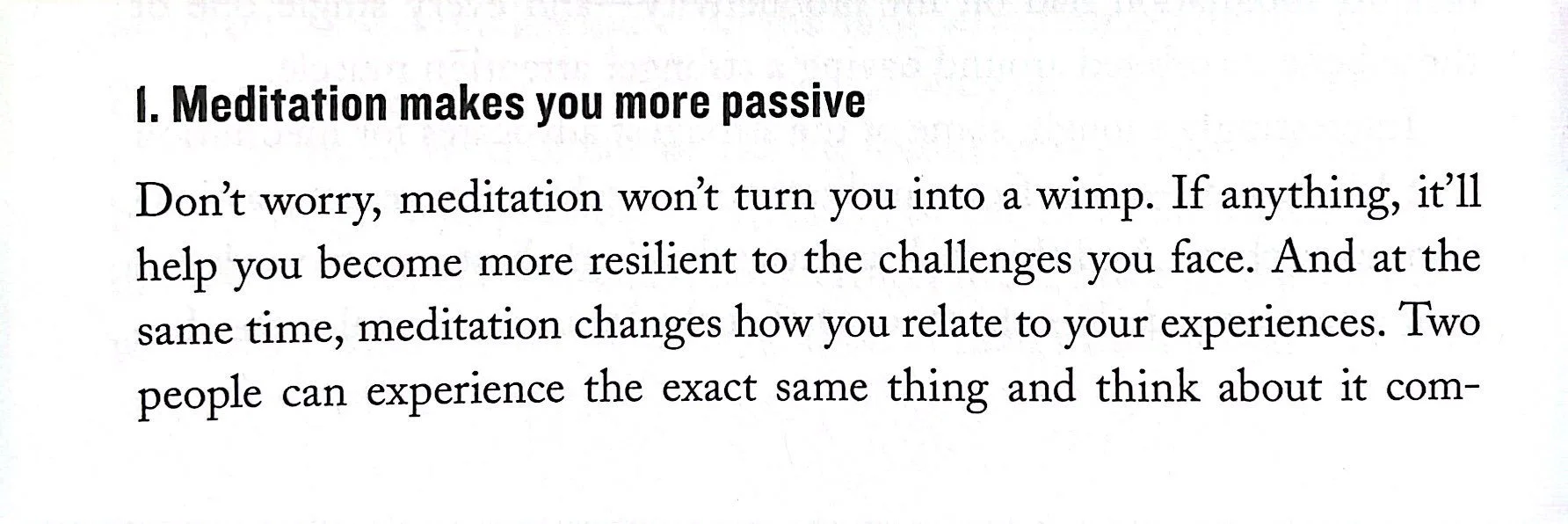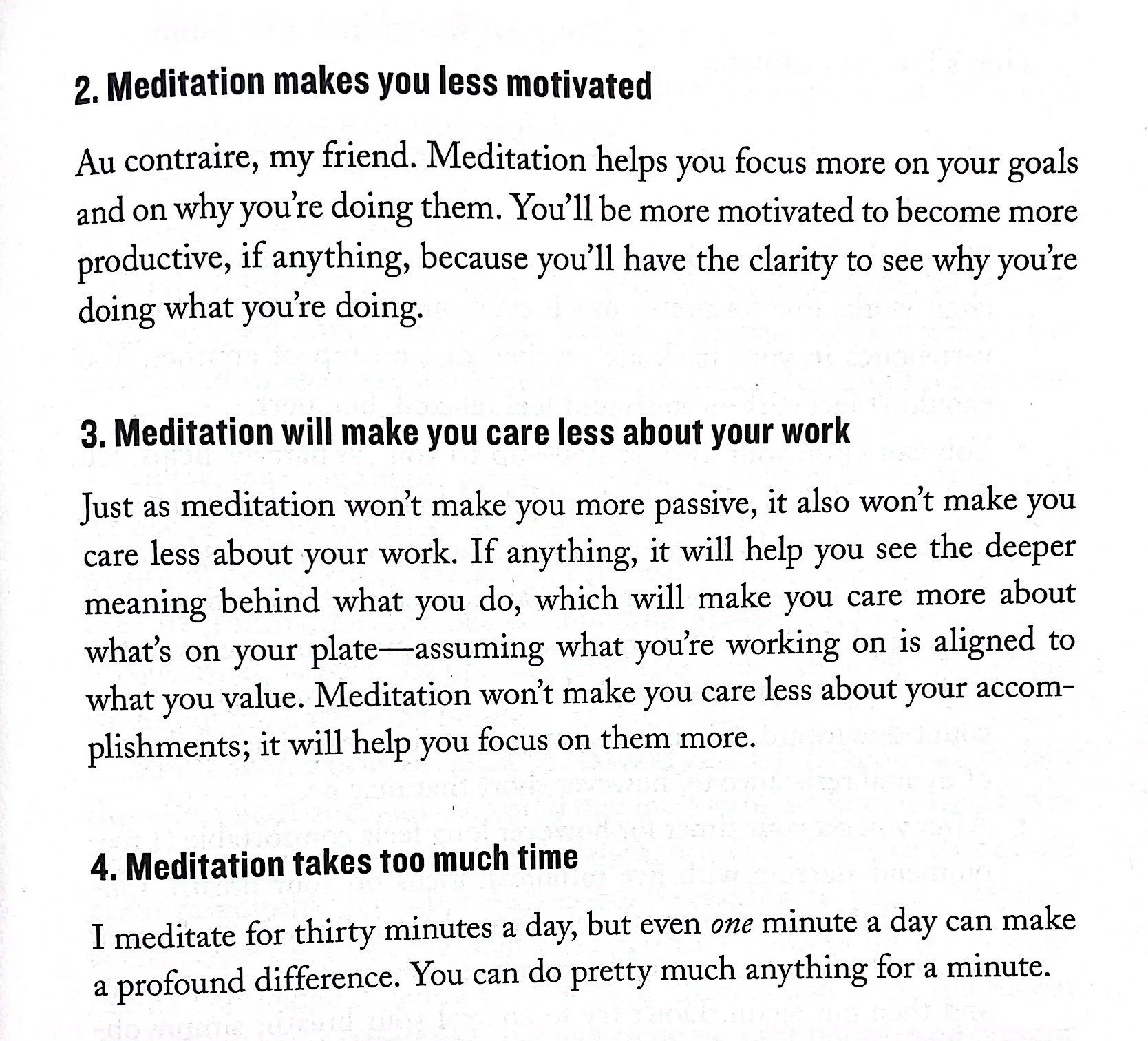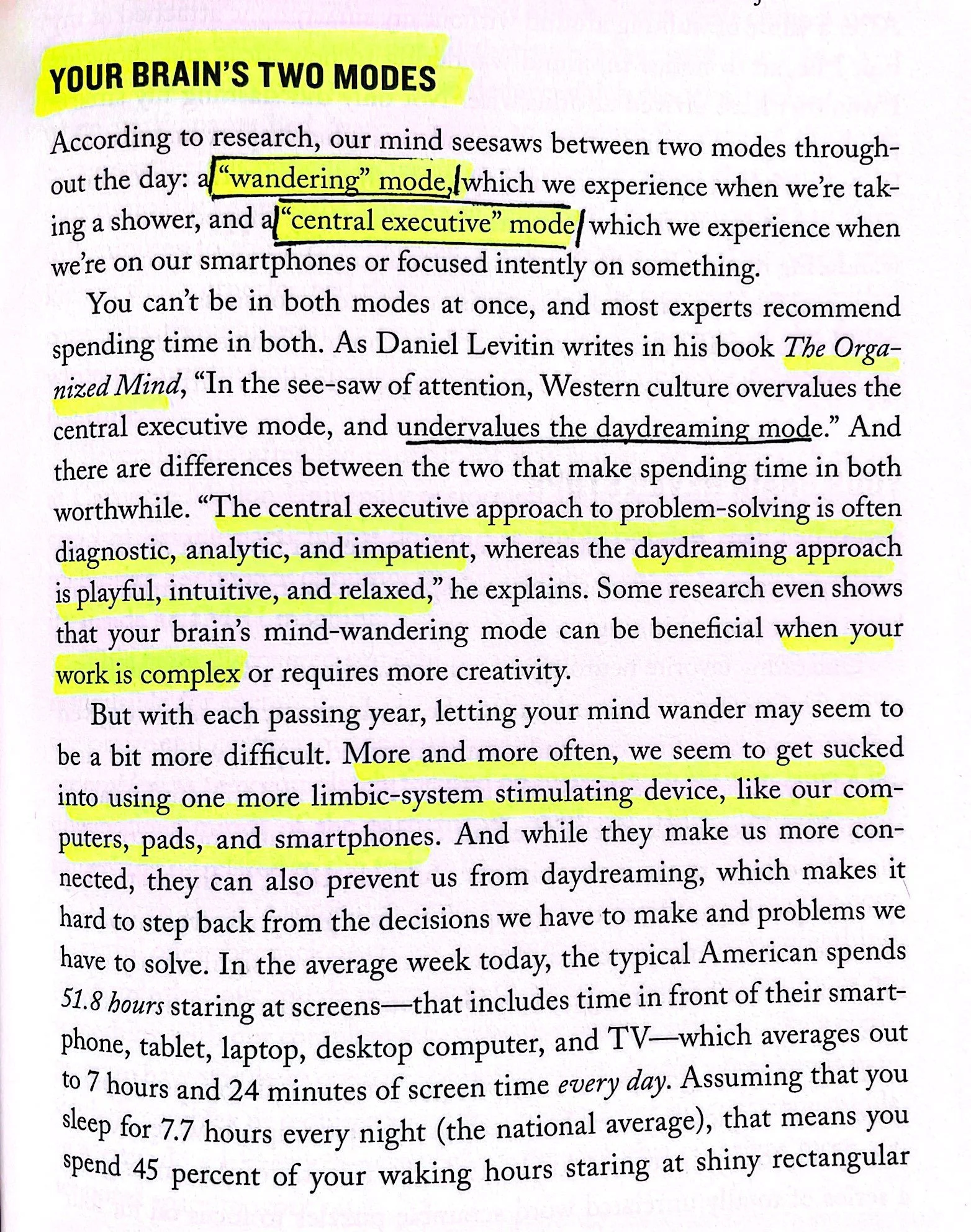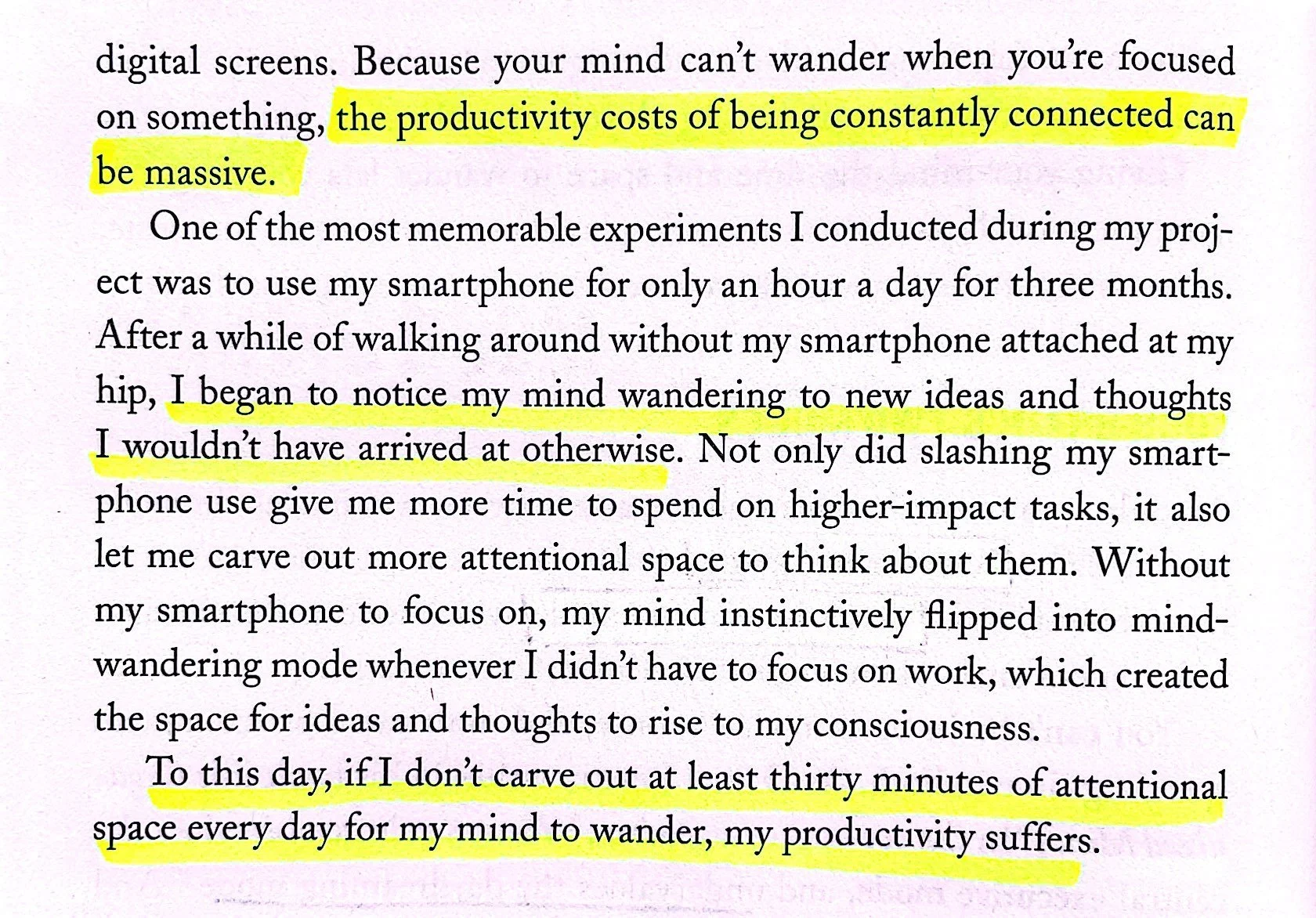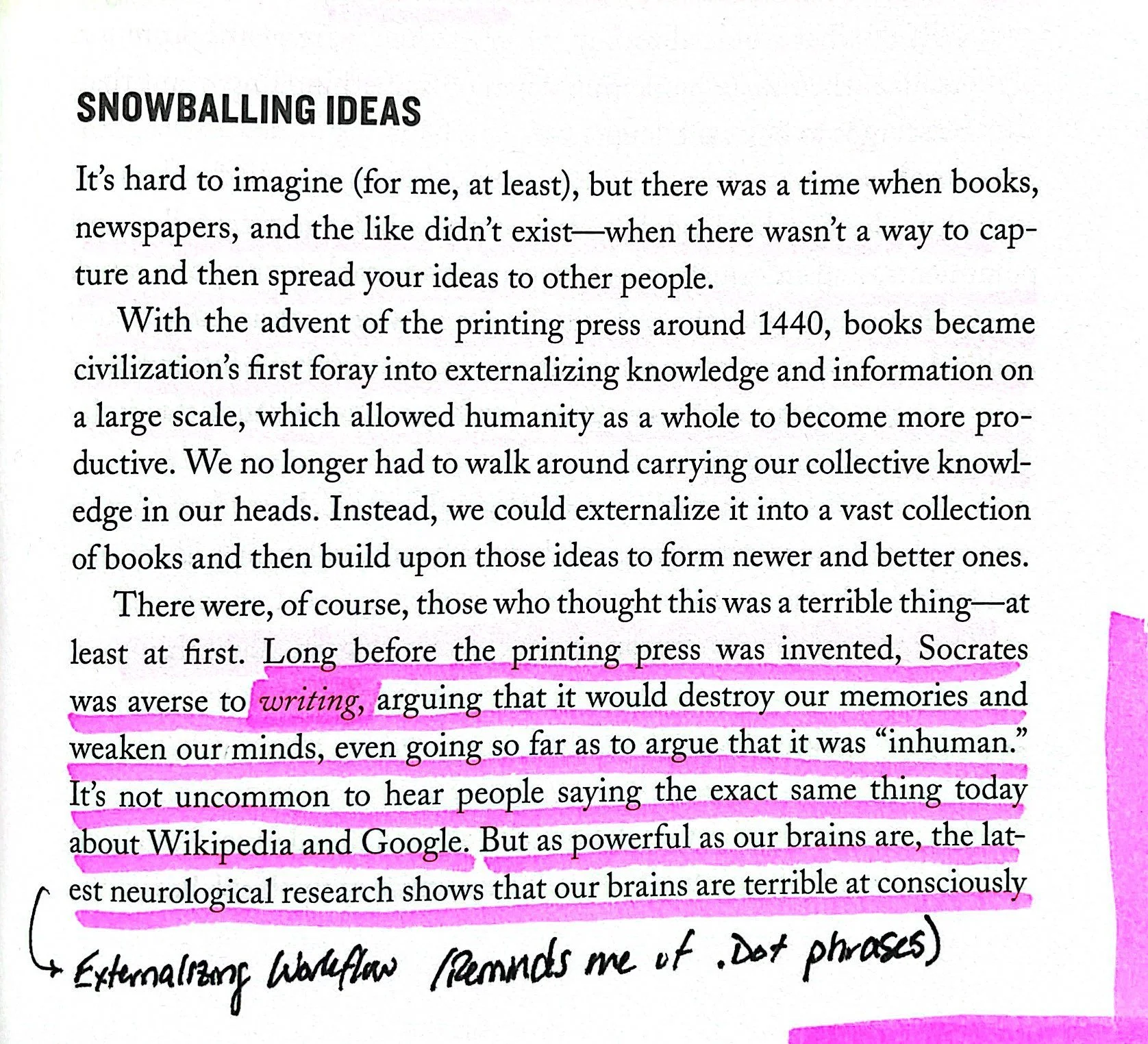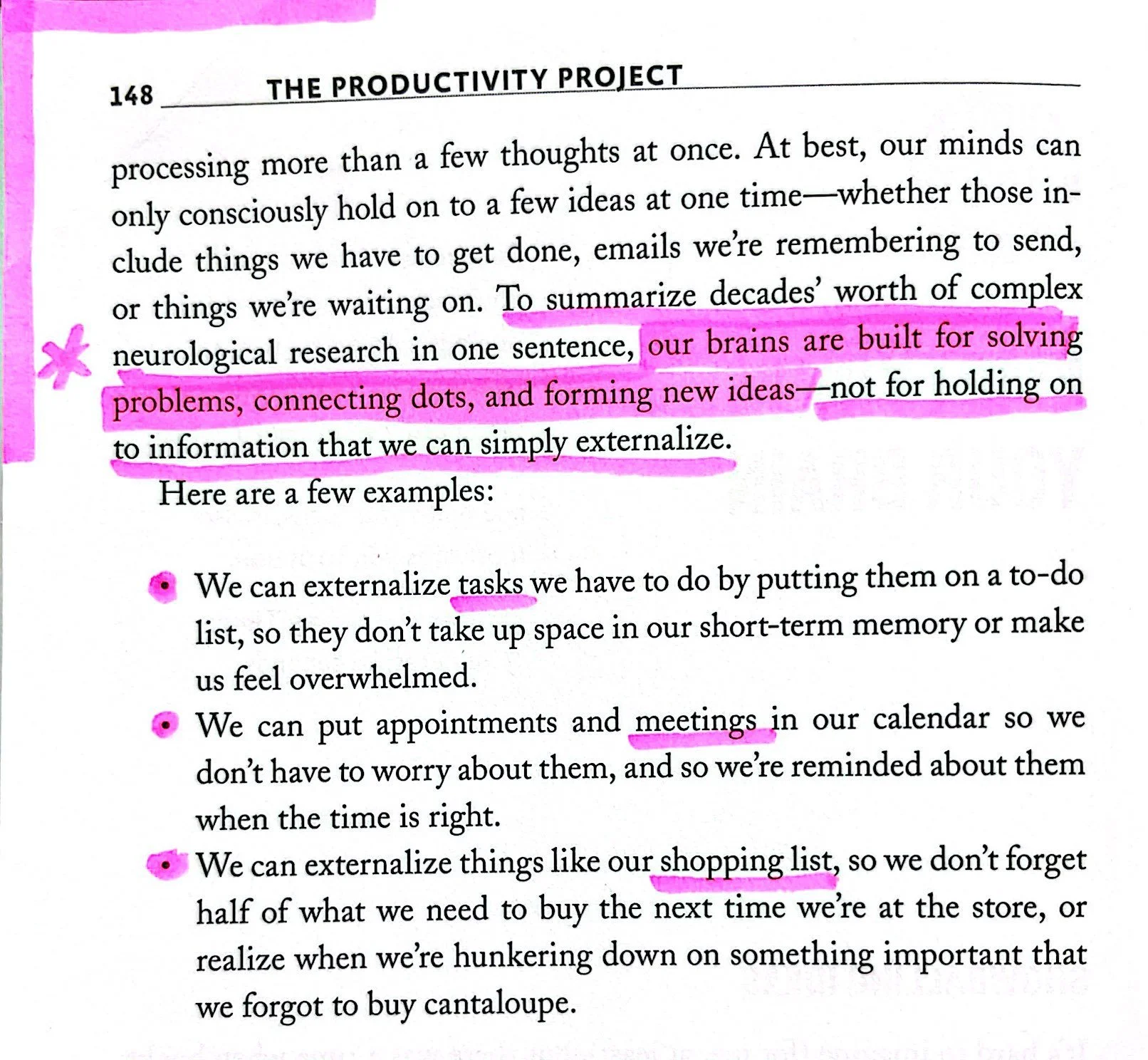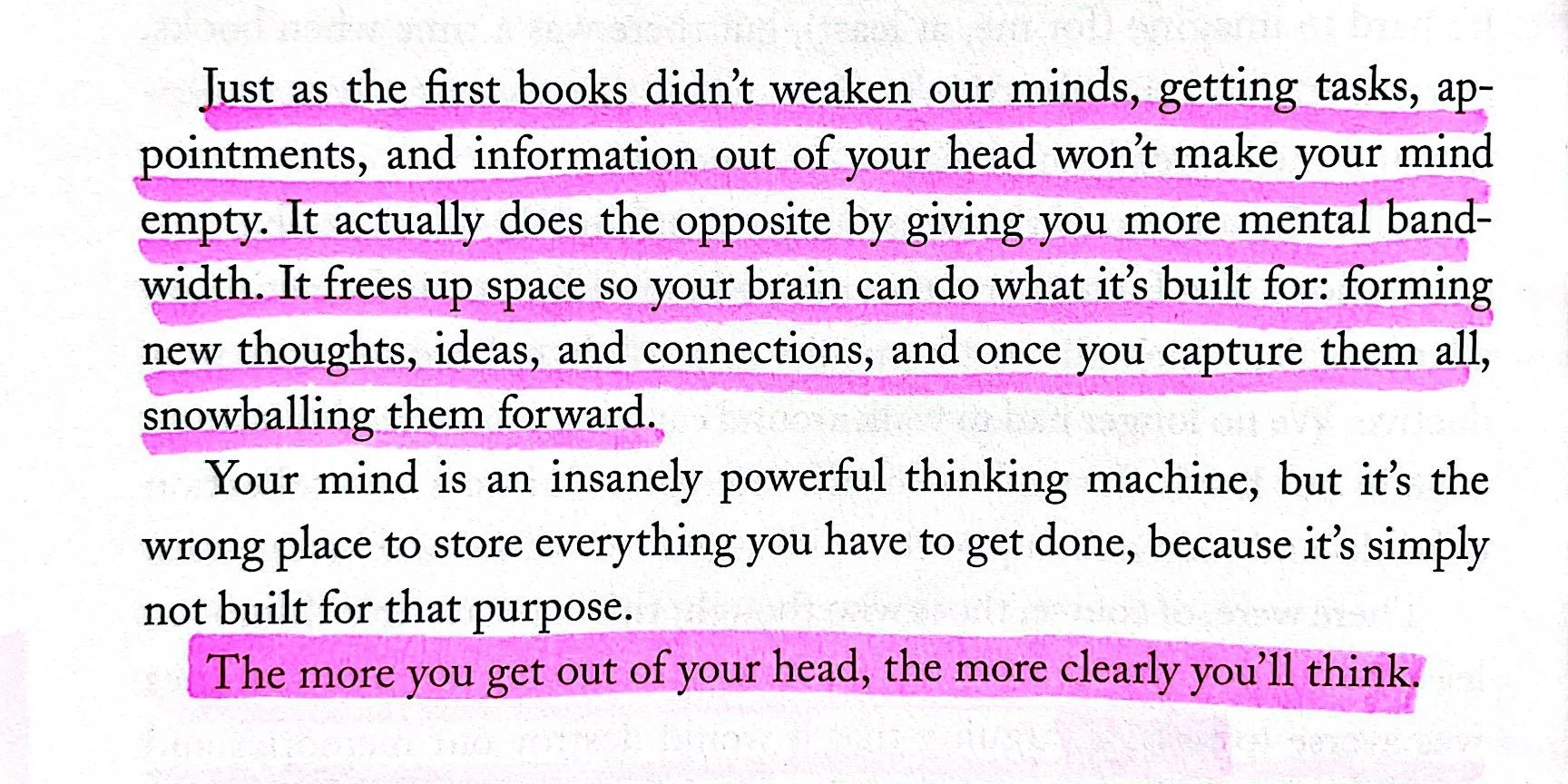The Productivity Project
Author(s): Chris Bailey
How much I would recommend this book to other medical students/residents: 9/10
Buy it on Amazon: Link
Post-Shift Recovery Activities
Shifts an emergency department can be exhausting. This page helped me I gain a lot of clarity on which post-shift activities are the most restorative.
Here’s a situation that I (and I know many of my colleagues) encounter too often:
I come home from a shift, I feel too tired to get back out and go do something I enjoy like exercise, spending time with friends/family, or working on a meaningful project.
I’ve experimented with this, and found that my mood increases significantly when I can take that extra step to get outside and move my body, socialize with other residents, I work in a creative project. It’s can be hard to make that first step, but when I follow-through and do it, I always get a mood boost.
One thing that has helped me take that first step: Having the clarity that these activities are exactly what I need.
Can happiness increase our productivity and job performance?
This is a concept that I see repeated throughout many productivity books.
It makes me think about how my performance has changed in various activities throughout my life when I’m in a good mood.
Negative Mood Mindset:
When feeling down, frustrated, or exhausted, it’s easy to have minor inconveniences really bother us. It becomes easier to see the negatives in situations. It blocks out our creative thinking ability to see is possible solutions that might be available to us.
Positive Mood Mindset:
In a positive mood, Obtaining a state of flow happens easier, Our creative thinking improves, inner productivity increases significantly.
It makes me think about it how performance improves when we are in a calm and happy state of mind.
I set up plays more creatively and score more points playing ice hockey when I’m just out having a good time.
My golf score improves when I don’t take it too seriously and just play to have fun.
This is something that many of us have likely experienced at some point in our life, but might have a hard time explaining it. However, this idea isn’t just speculation. It’s proven by a number of studies.
How might this impact medical student and resident performance?
It is pretty exciting to think about that by focusing on our happiness and well-being might actually help medical students, residents, and physicians perform better.
This topic has been a strong motivator for me to explore welless as it relates to medical education.
Tips for Handling Challenges as an Emergency Medicine Resident
Presented a patient to your attending and completely fumbled it? Attempted a procedure for the first time and it didn’t go well? Good. That’s how we learn.
Failure from time to time is actually a good thing. Can you imagine if everything went right in our life for 25 years, and then we encountered our first failure? It would be absolutely devastating.
There are so many careers that require lifelong learning, and emergency medicine is no different. Failures are good. It’s how we grow.
On the other hand, think about how many things have gone well for you?
We are biologically hardwired to notice when things go bad. Throughout human history, that’s how we’ve learned to survive. However, we don’t have the same threats that we did when humans live in caves and had to compete with lions and bears for food.
Try this exercise:
Take a moment to think about all the things that did go well for you this week. Pick out a few of your favorites, and write them down. When you’re having an off day, go back to this list. I can almost guarantee you it will give you a mood boost.
Tips for Directing Focus to the Task at Hand
This is one exercise that I’ve taken from this book that has helped me a lot.
Have you ever been driving to work, in the middle of a shift, call the middle of a project, when a random worrying thought arises?
Or some examples, these are a few that I’ve had:
“Shoot, I forgot to wish my friend ____ happy birthday today.”
“Ugh, I just remembered that My fit testing it’s about to expire. I need to schedule that ASAP.”
“Ahh, I was supposed to RSVP to ____’s wedding by today. I feel like a terrible friend.”
Many times, these can be worries that are important to be handled, but cannot be taken action on any immediate moment.
Try this solution: The “worry list.”
Open up a notebook, or a note in Apple Notes (or any similar notes app) then jot it down. Have peace of mind knowing that you won’t forget it, and you’ll get back around to it when you have time to take action on it.
In my experience, this has given me an immediate sense of peace knowing that I won’t forget it, and it’s safe in this place. I know that I’ll return to this page in the future when the time is right to tackle each task.
Then, I can redirect all my focus to the task at hand.
Tips for Studying & Practice Questions:
This is something that I wish I would’ve done more when I was studying for the USMLE Step 1 in USMLE Step 2.
Now as an Emergency Medicine resident practicing Rosh Review questions, I always set a timer. Studies have shown that 25 minute intervals, with five minute breaks, I’ve been shown to have a maximum output. The five minute breaks are short enough for a short mental break to augment endurance, but not too long that it interrupts flow.
You can use a simple timer or stopwatch on your phone, or there are also a lot of apps out there in the App Store if you search “Pomodoro.”
Energy for our Shifts:
How can Mindfulness Improve Productivity as an Emergency Medicine Resident?
“Mindfulness is simply the art of deliberately doing one thing at a time.”
Mindfulness = Productivity
Mindfulness is about creating more attentional space around the present moment, so that you can focus completely on what you’re doing. It also means reflecting on how you’re feeling about what you’re doing, and what you think about what you’re working on.
